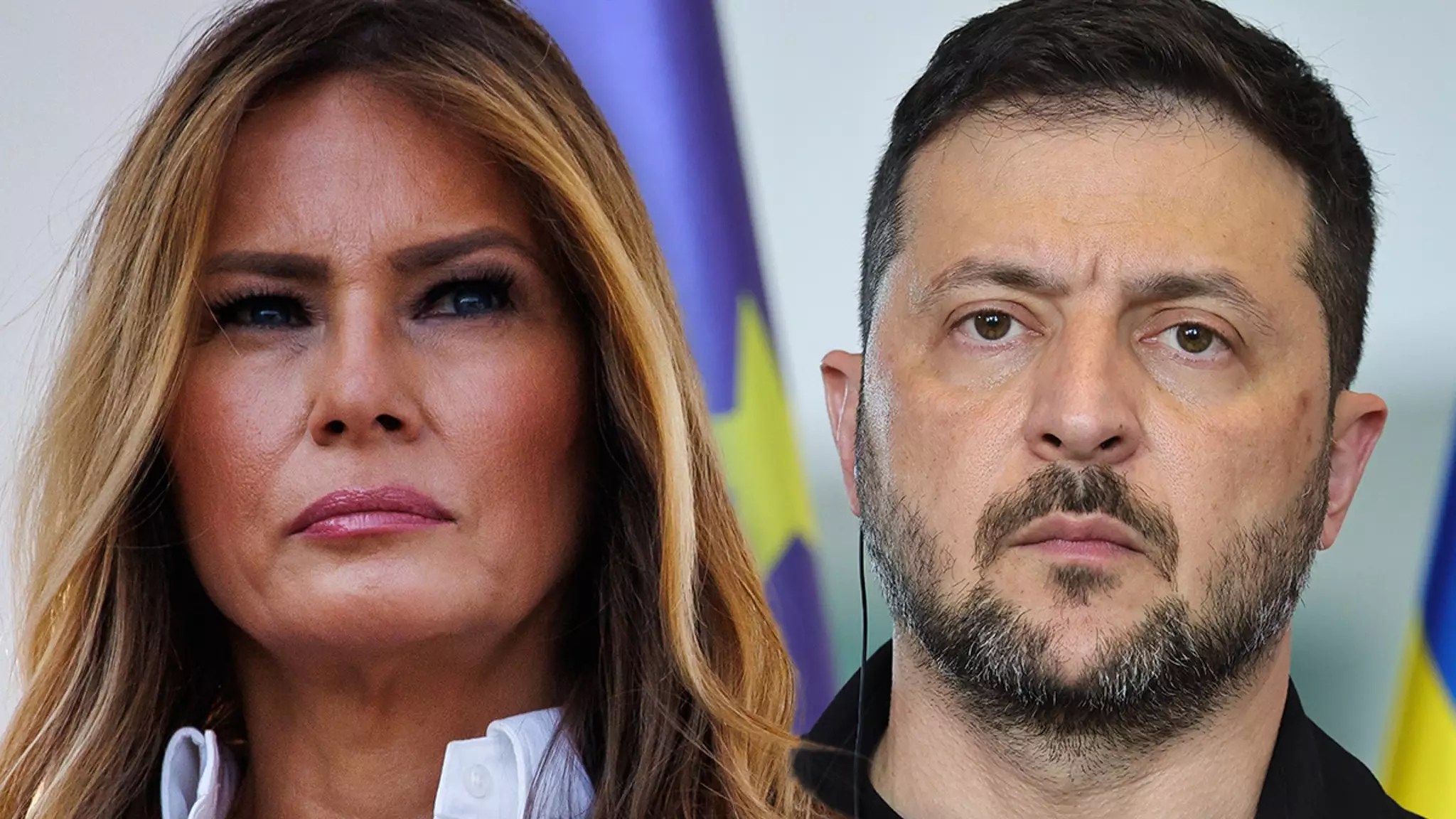In the often impersonal realm of geopolitics, a heartfelt letter can serve as a pivotal gesture that transcends political jargon and strategic posturing. Melania Trump’s decision to write a personal message to Vladimir Putin, delivered during a high-stakes summit, exemplifies the potency of individual voices in global affairs. While she was not physically present during the meeting, her words carried a symbolic weight, underscoring that even behind diplomatic barricades, human empathy remains an influential force. This act challenges the notion that diplomacy is solely conducted through treaties and televised negotiations; sometimes, a sincere plea can serve as a subtle catalyst for change.
The Significance of Addressing Humanity in Power Politics
Melania’s letter, centered on the plight of Ukrainian children caught in the crossfire of war, highlights a fundamental truth often overshadowed by political ambitions: the human cost of conflict. By emphasizing the innocence and dreams of children, she reminds world leaders that their decisions ripple through the lives of the most vulnerable. Her plea for Putin to protect “the innocence” of children is not merely an emotional appeal but a strategic reminder of shared human responsibilities. It forces the decision-makers to confront their moral obligations beyond national interests, urging them to consider the future they are shaping for coming generations.
The Subtle Art of Ego Diplomacy
Facebook and Instagram posts can sometimes seem trivial in the diplomatic arena, but Melania’s choice to publicly share her letter is a calculated move. It reverse-engineers the ego-driven nature of global diplomacy; she appeals directly to Putin’s sense of purpose and greatness, framing his ability to act on this moral imperative as an opportunity to serve humanity. This approach subtly pressures him to see beyond political wins and consider his legacy in fostering peace. Such tactics demonstrate that in the game of international influence, personalized messaging—especially when it taps into ego—can be surprisingly effective, bypassing the usual channels and invoking a more visceral response.
The Broader Implications for U.S.-Russia Relations
While her letter alone didn’t immediately alter the course of diplomacy, it set a tone of moral urgency that cannot be ignored in the analytical landscape of geopolitics. The fact that the meeting between Trump and Putin took place amid tense negotiations regarding Ukraine underscores the fragile state of peace efforts. Though the summit did not yield a resolution, the subsequent statements and upcoming talks involving Zelenskyy indicate a recognition that diplomacy must evolve—embracing not just political strategizing, but human stories that underline the costs of conflict. Melania’s initiative exemplifies how private gestures, when appropriately amplified, can influence the narrative around diplomacy, potentially nudging leaders toward more compassionate decision-making.
Redefining Leadership as Empathy and Action
This episode invites a broader reflection on what leadership in the modern era entails. It’s not enough to wield power; effective leaders recognize the moral dimension of their roles. Melania’s letter, although personal, symbolizes a call for leaders to reconnect with their human responsibilities amidst geopolitical tensions. It challenges the cynicism that often shrouds international affairs by suggesting that small acts of genuine empathy—like a heartfelt note—can serve as catalysts for significant change. In today’s interconnected world, influence extends beyond political treaties; it resides in the ability of influential figures to inspire action driven by compassion.
The act of sending a letter may seem modest, but in the landscape of diplomacy, it holds the potential to ignite moral reflection, shift perceptions, and ultimately, foster a more humane approach to solving global crises.







Leave a Reply